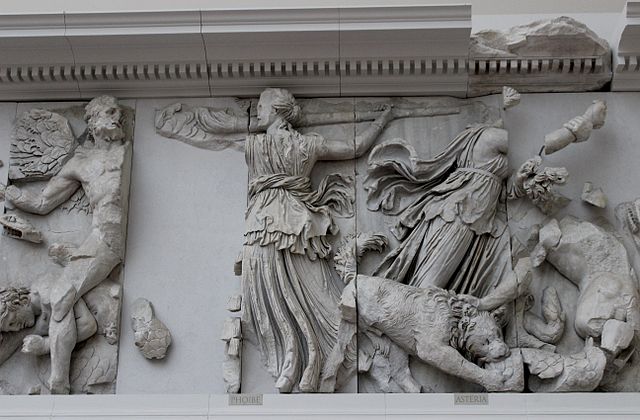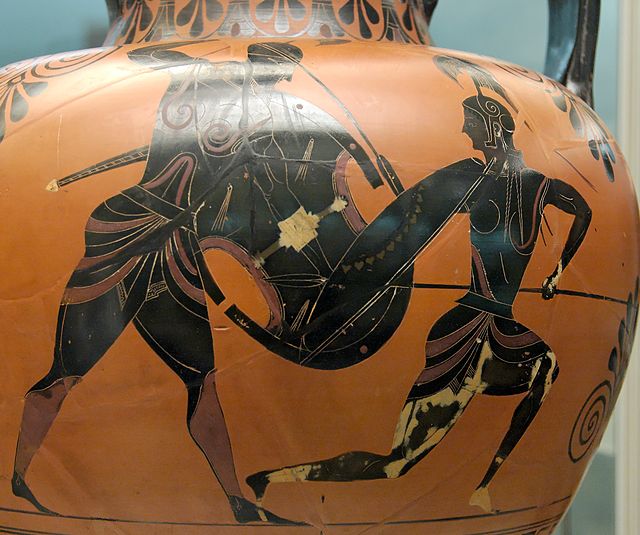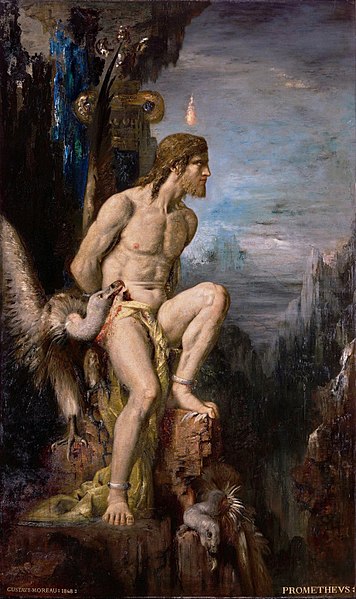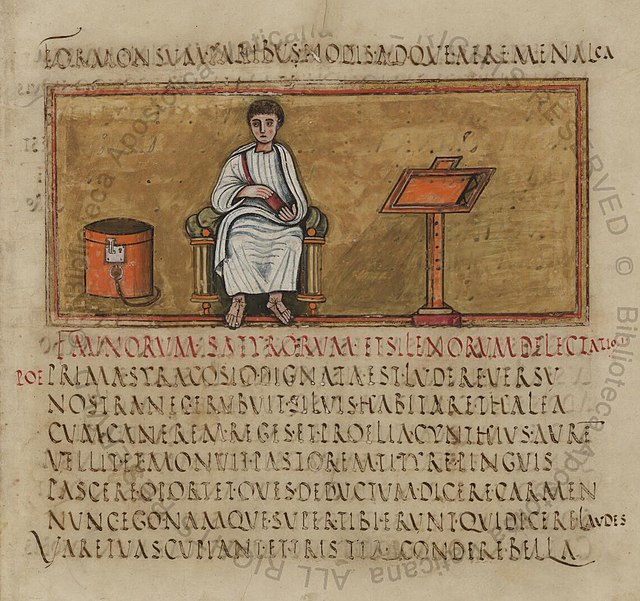In ancient Greek religion and mythology, Phoebe was one of the first generation of Titans, who were one set of sons and daughters of Uranus and Gaia. She was the grandmother of Apollo and Artemis, and the witchcraft goddess Hecate. According to myth, she was the original owner of the site of the Oracle of Delphi before gifting it to her grandson Apollo. Her name, meaning "bright", was also given to a number of lunar goddesses like Artemis and later the Roman goddesses Luna and Diana, but Phoebe herself was not actively treated as a moon goddess in her own right in ancient mythology.
A fresco of Herculaneum depicting Phoebe trying to pacify Leto and Niobe, while Hilearia and Agle play knucklebones, painted and signed by an artist named "Alexander of Athens", 1st century AD, now in the Museo Archeologico Nazionale (Naples)
Phoebe gifts the oracular tripod to Apollo, by John Flaxman
Phoebe and Asteria fighting Giants on the Pergamon Altar.
Greek mythology is the body of myths originally told by the ancient Greeks, and a genre of ancient Greek folklore, today absorbed alongside Roman mythology into the broader designation of classical mythology. These stories concern the ancient Greek religion's view of the origin and nature of the world; the lives and activities of deities, heroes, and mythological creatures; and the origins and significance of the ancient Greeks' cult and ritual practices. Modern scholars study the myths to shed light on the religious and political institutions of ancient Greece, and to better understand the nature of myth-making itself.
Achilles and Penthesileia by Exekias, c. 540 BC, British Museum, London
Prometheus (1868 by Gustave Moreau). The myth of Prometheus first was attested by Hesiod and then constituted the basis for a tragic trilogy of plays, possibly by Aeschylus, consisting of Prometheus Bound, Prometheus Unbound, and Prometheus Pyrphoros.
The Roman poet Virgil, here depicted in the fifth-century manuscript, the Vergilius Romanus, preserved details of Greek mythology in many of his writings.
Phaedra with an attendant, probably her nurse, a fresco from Pompeii, c. 60 – c. 20 BC







